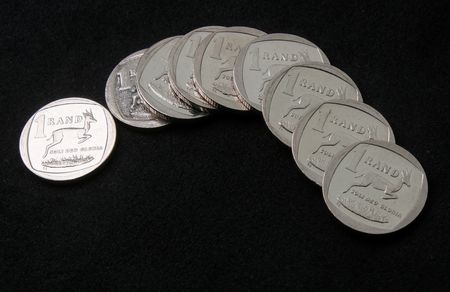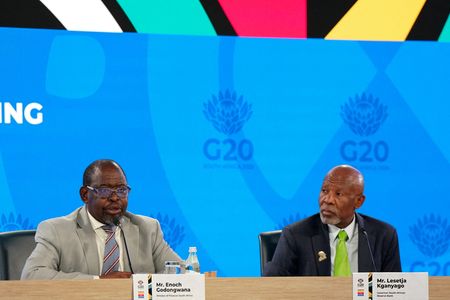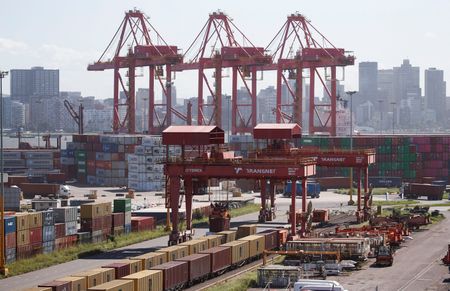By Erwin Seba
HOUSTON (Reuters) -Oil prices $2 a barrel on Friday because of jitters about a possible increase in production by OPEC and its allies, while a weaker-than-expected U.S. jobs report fed worries about demand.
Brent crude futures settled at $69.67 a barrel, down $2.03, or 2.83%. U.S. West Texas Intermediate crude finished at $67.33 a barrel, down $1.93, or 2.79%.
Brent finished the week with a gain near 6%, while WTI rose 6.29%.
Three people familiar with discussions among OPEC members and allied producers said the group may reach an agreement as early as Sunday to boost production by 548,000 barrels per day in September.
A fourth source familiar with OPEC+ talks said discussions on volume were ongoing and the hike could be smaller.
The U.S. Labor Department said the country added 73,000 jobs in July, lower than economists had forecast, raising the national unemployment rate to 4.2% from 4.1%.
“We can blame U.S. President Donald Trump with the tariffs or we can blame the Federal Reserve for not raising interest rates,” said Phil Flynn, senior analyst with Price Futures Group. “It looks like the Fed misjudged their decision on Wednesday.”
On Wednesday, the Fed voted to keep interest rates unchanged, drawing criticism from Trump and a chorus of Republican legislators.
Oil traders have focused for much of the week on the potential impact of U.S. tariffs, with tariff rates on U.S. trading partners largely set to take effect from next Friday.
Trump signed an executive order on Thursday imposing tariffs ranging from 10% to 41% on U.S. imports from dozens of countries and foreign territories that failed to reach trade deals by his Aug. 1 deadline, including Canada, India and Taiwan.
Partners that managed to secure trade agreements include the European Union, South Korea, Japan and Great Britain.
“We think the resolution of trade deals to the satisfaction of the market – more or less, barring a few exceptions – has been the key driver for oil price bullishness in recent days,” said Suvro Sarkar at DBS Bank.
Prices were also supported this week by Trump’s threats to impose 100% secondary tariffs on Russian crude buyers as he seeks to pressure Russia into halting its war in Ukraine. This has stoked concern over potential disruption to oil trade flows and the removal of some oil from the market.
On Thursday, JP Morgan analysts said Trump’s threatened penalties on China and India over their purchases of Russian oil potentially put 2.75 million barrels per day (bpd) of Russian seaborne oil exports at risk. China and India are the world’s second and third-largest crude consumers respectively.
(Reporting by Erwin Seba in Houston, Robert Harvey in London, additional reporting by Ahmad GhaddarEditing by David Goodman, Frances Kerry, Elaine Hardcastle, Deepa Babington and David Gregorio)











